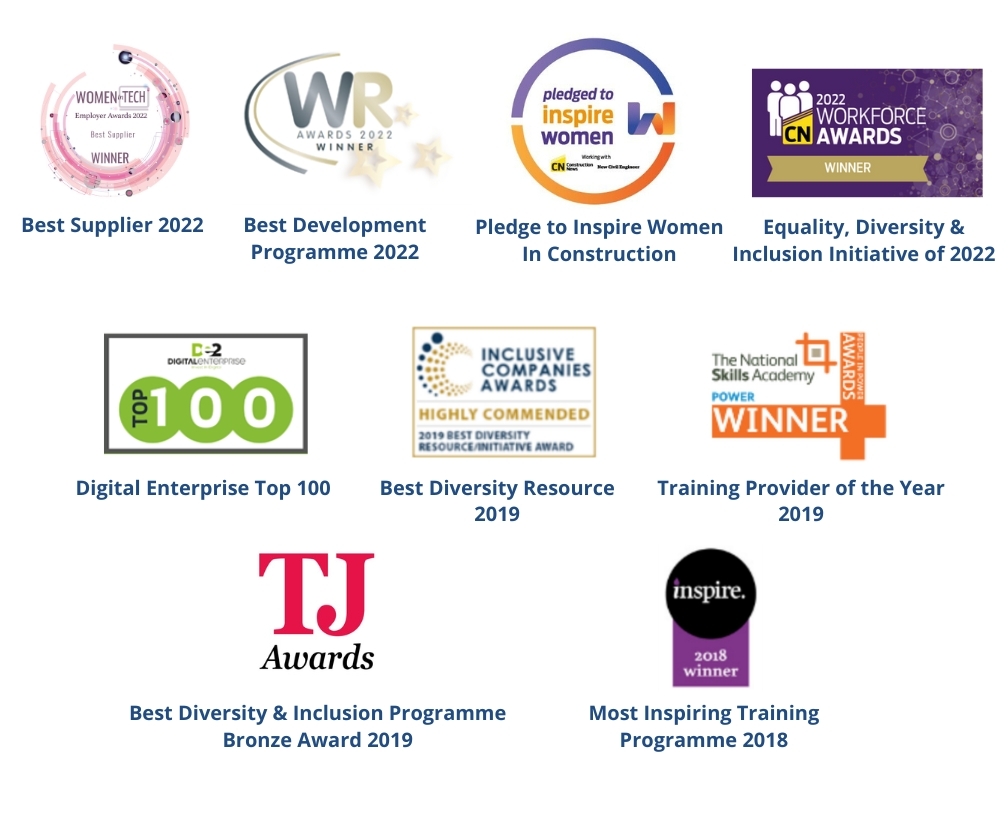Photos by Sharon McCutcheon and Katie Moum on Unsplash
Companies need diversity.
Diversity is more than gender or ethnicity; it’s our different abilities, our age, our origins, our sexual orientation, our faith, and our socioeconomic status.
All these factors represent individual embodied experiences and when brought together can create a wealth of skill, knowledge, and potential in the workplace.
Without diversity, there’s homogeneity.
Racially diverse teams outperform non-diverse teams by 35%. (1)
Homogeneity means everyone thinking the same way, hiring the same people, operating in the same way. Homogeneous teams are less likely to consider the needs of other groups. It means lower profits, a smaller geographical reach, and simply a less attractive place to work.
Companies who have embraced diversity show a greater creativity and a better understanding of their clients. They’re able to innovate more, increase inclusivity, and improve performance.
Above-average diversity in management results in 19% point higher innovation revenue. (2)
A common misunderstanding is that implementing diversity will cause conflict and therefore hamper productivity. A study carried out by MIT engineers observed that diverse successful teams had three things in common:
Companies in the top-quartile gender diversity are 21% more likely to achieve above average profit. (3)
Diverse teams are more motivated, resulting in a richer employee experience, a sense of belonging, and stronger team unity.
Claiming to support diversity isn’t enough, these companies typically fail the needs of specific employees, namely women, people of colour, and LGBTQ+ individuals. Some of the most effective diversity measures are as follows:
In today’s competitive business world, employers simply can’t afford not to embrace diversity, and they should actively educate their workforce and support diverse employees in the workplace.
50% of managers admit they would be uncomfortable hiring a neurodiverse individual. (4)
A vast misunderstanding exists where diversity training is seen as a waste of time and is seen to create differences, a sense of ‘other’, and pit groups against each other. This in fact is the opposite of what diversity training achieves.
1 in 5 senior executives with a disability do not feel comfortable admitting it to their colleagues. (5)
The crux of diversity training and ensuring diversity in the workplace is:
Ensuring everyone is treated equally, with dignity and respect, and has their fair share of resources (whether that be access to work, progression or pay) and is simply the right thing to do.
Our vision at Skills 4 is:
To live in a world where everyone brings their true self to work.
More than a third of LGBTQ+ employees have hidden or disguised that they are LGBTQ+ for fear of discrimination. (6)
Our award winning programmes include UNCONSCIOUS BIAS and INCLUSION ALLIES training. These programmes recognise that we are all biased to some extent, and we explore why our biases are created and maintained, as well as the impact they can have in our workplaces.
Through training such as these, we can all work together on our commitment to create and maintain an inclusive culture where everyone belongs, can be their true self, and can reach their full potential.
